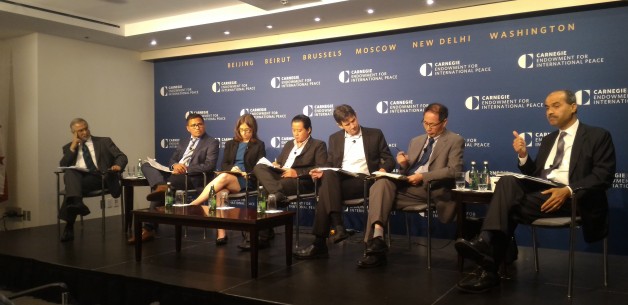On June 29, 2016, BIC co-organized a panel session with the Natural Resource Governance Institute (NRGI) on the ongoing governance challenges in Myanmar’s extractives industries sector and reform options that can contribute to sustainable, inclusive development in the country. The panel event, titled “How Can Myanmar Avoid the Resource Curse?” was hosted by the Carnegie Endowment for International Peace as was moderated by Vikram Nehru, a senior associate in Carnegie’s Asia Program.
In a country with Myanmar’s vast natural resources, issues related to conflict economies, security sector reform and other aspects of peace-building are inseparable from economic development. The complex nexus of natural resource extraction, conflict, and corruption in Myanmar layers an added degree of difficulty onto the work of the International Financial Institutions (IFIs). In this context, the IFIs face enormous challenges to ensure their interventions support inclusive and sustainable development.
The launch of Myanmar’s first Extractive Industries Transparency Initiative (EITI) report and related findings on Myanmar’s jade mining and state-owned enterprises make a compelling case for significant reform of this sector. This panel brought together grassroots leaders and key experts to answer the following question: what should the newly elected National League for Democracy (NLD) government do to improve the governance of resource wealth in the country, and how can the international community, including the IFIs, assist?
Speakers on the panel included Saw Alex Htoo (Myanmar Alliance for Transparency and Accountability), Jelson Garcia (NRGI), Patrick Heller (NRGI), Stefanie Ostfeld (Global Witness), Sudhir Shetty (World Bank), and Yongzheng Yang (International Monetary Fund).
Listen to the audio of the panel session now from Carnegie’s website:

